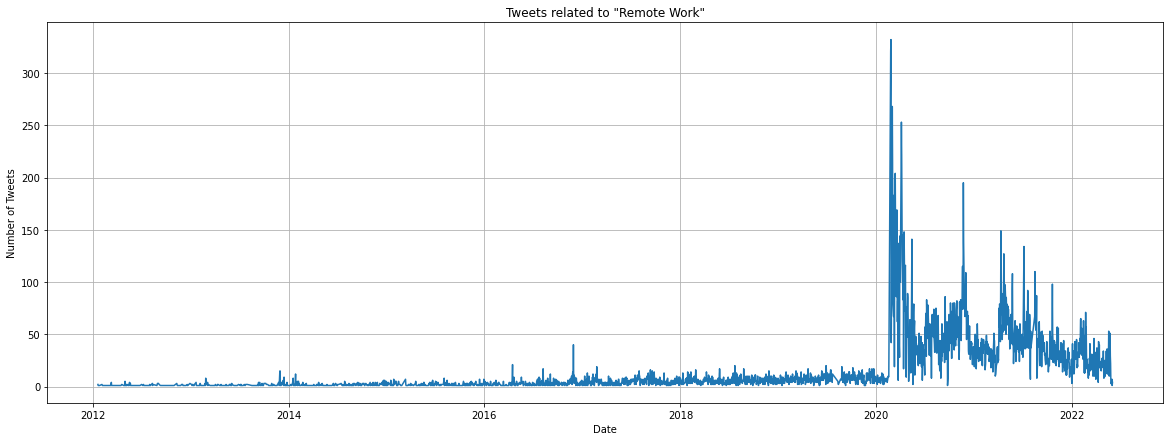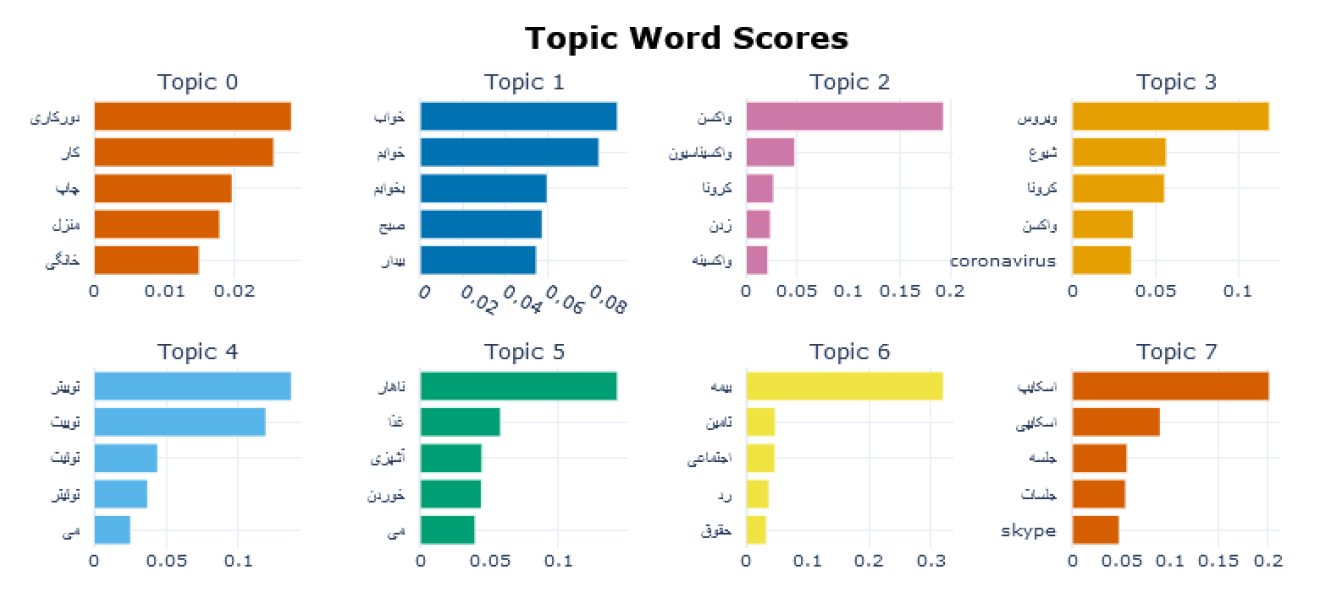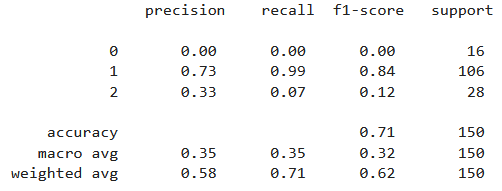This is a data analysis project using ML/NLP techniques concerning tweets relevant to remote work.
To conduct the analysis of Persian tweets related to remote work during the COVID-19 pandemic, we employed the Twitter API to fetch Persian Twitter data. A dataset comprising 45,359 remote work-related tweets was extracted using specific Farsi and English query phrases.
We focused on selecting tweets relevant to remote work from the collected Persian tweets. We designed a comprehensive query using the Elasticsearch Query DSL to target specific words and phrases associated with remote work in Persian. The query included a range of terms such as "کار از منزل" (work from home), "کار در خانه" (work at home), "کار از راه دور" (remote work), and various other related terms. By utilizing this query, we ensured that our data collection process focused on tweets that explicitly mentioned or discussed remote work. This allowed us to gather a relevant and representative dataset for our analysis. We excluded certain fields such as thumbnails, photos, and videos to focus solely on the textual content of the tweets, enabling us to examine the discourse surrounding remote work during the pandemic more comprehensively.
We removed duplicate chars and emojis (available in emojies.txt), stop-words (available in the stopwords folder), Unicode errors, URLs, phone numbers, emails, currency symbols, and useless punctuations and chars. Also, normalization and lemmatization were applied using tools like Hazm, which is optimized for the Persian language, and NLTK.


Wordcloud (Persian) Wordcloud (Translated)
Topic modeling is a type of statistical modeling that uses unsupervised Machine Learning to identify clusters or groups of similar words within a body of text. This text mining method uses semantic structures in text to understand unstructured data without predefined tags or training data.
Three algorithms, Latent Dirichlet Allocation (LDA), Gibbs Sampling Dirichlet Mixture Model (GSDMM), and BERTopic, were employed for this analysis. BERTopic is one of the Masked Language Models and contextualized models, while LDA and GSDMM are not.
Latent Dirichlet Allocation (LDA) is used as a topic modeling technique that can classify text in a document to a particular topic. It uses Dirichlet distribution to find topics for each document model and words for each topic model. LDA is a technique to map sentences to topics. LDA extracts certain sets of topics according to the topic we fed to it.
GSDMM (Gibbs Sampling Dirichlet Multinomial Mixture) is a short text clustering model. The model solves the sparsity problem of short text clustering while also displaying word topics like LDA. GSDMM is essentially a modified LDA that assumes that a document (tweet) encompasses 1 topic. This differs from LDA which assumes that a document can have multiple topics.
Both lemmatized and not lemmatized tweets were considered. Furthermore, the impact of different text representation methods, including term frequency-inverse document frequency (tf-idf) and bag-of-words (BOW), on the performance of these models was explored.
BERTopic is a topic modeling technique that leverages BERT embeddings and c-TF-IDF to create dense clusters allowing for easily interpretable topics whilst keeping important words in the topic descriptions. The topics extracted are mainly about sleeping, vaccination, COVID-19, insurance, online meetings and Skype, and internet speed and problems.
A sample of 1,500 tweets was labeled manually based on three categories of opposition, acceptance, and neutral. Naive Bayes and Transformer models were employed.
Incorporating transformer-based architectures, such as ParsBERT, BERTweet-FA, and XLM-RoBERTa, for the text classification task.
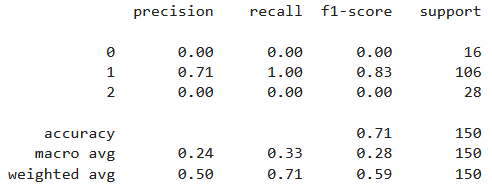
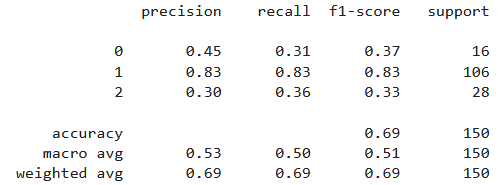
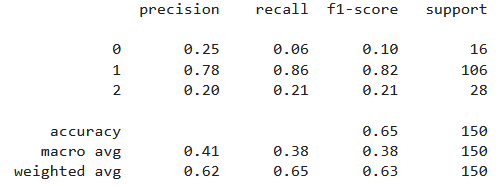
Results by XLM-RoBERTa Results by ParsBERT Results by BERTweet-FA
